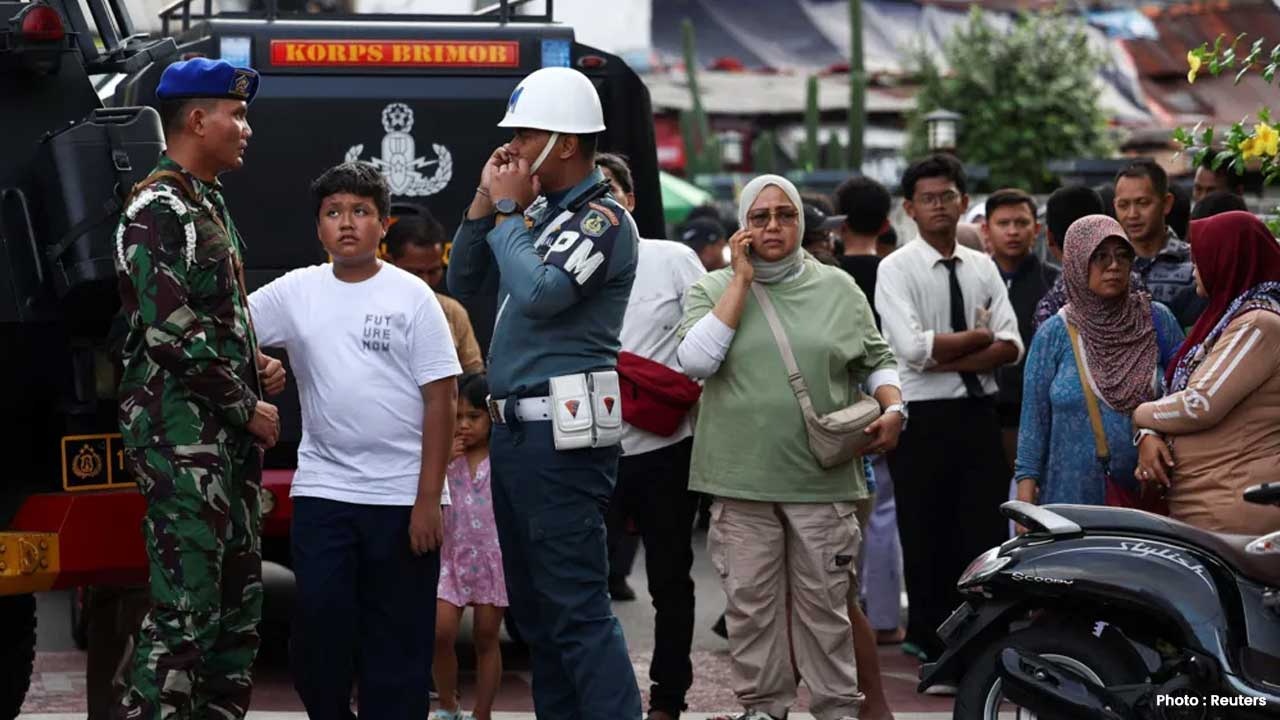
Injuries Reported from Jakarta Mosque Blast Amid P
A mosque explosion in Jakarta's high school injured many. Authorities are investigating as locals aw

The fourth season of Maharani brings back Huma Qureshi in an enthralling political narrative. This installment dives into the intricate relationships and fierce ambition that characterize Bihar's political arena, transforming it into a battleground of strategy and retribution.
The series launches at a critical junction, aligning with the initial phase of the Bihar 2025 Assembly Elections where a notable 64.66% voter turnout occurred, highlighting the drama's timely relevance.
Continuity and Growth: A Journey from Past to Present
Picking up from Season 3's conclusion, Maharani 4 propels viewers from the early 2000s to present-day Bihar. Huma Qureshi returns as Rani Bharti, now firmly established as the Chief Minister, after successfully imprisoning the murderers of her husband, the former CM Bheema Bharti (played by Soham Shah).
With adversaries now behind bars, Rani Bharti's political ambition escalates. Her newfound independence raises eyebrows among her long-time secretary, Kaveri (Kani Kusruti), whose loyalty comes under scrutiny as the political stakes climb.
New Alliances and Rising Challenges
The political landscape intensifies when PM Joshi, portrayed by Vipin Sharma, faces internal dissent while trying to secure alliances from West Bengal and Tamil Nadu. After offers of a "double-engine ki sarkar" for Bihar, Rani Bharti publicly denies Joshi's proposal, showcasing her resolute political stance.
Rani’s eye for greater leadership extends beyond Bihar to the Prime Ministerial seat, stirring division within her own party. The Rashtriya Janata Samajwadi Party splits between the 'Old Guard', represented by Mishra ji (Pramod Pathak), and the younger faction led by her daring son, Jai Prakash Bharti (Shardul Bharadwaj).
Family, Loyalty, and Future Leadership
In a pivotal maneuver, Rani Bharti appoints her articulate daughter, Roshni Bharti (Shweta Basu Prasad), to manage Bihar's governance, indicating a shift towards a younger generation in politics. In contrast, her youngest son, Surya (Darsheel Safary), opts for a quieter life in London, sidestepping the political tumult.
Meanwhile, Kaveri, Rani's loyal aide, faces recruitment challenges from Joshi's faction, further complicating the internal dynamics of Rani's political circle.
Expanding Horizons of Political Narratives
Maharani 4 expands its storytelling scope, connecting Bihar to Delhi, West Bengal, Tamil Nadu, and Jammu & Kashmir, providing a broad lens on Indian political dynamics. The show explores themes such as nepotism, meritocracy, and the complexities of language, effectively intertwining commentary with family drama.
A powerful scene depicts siblings Roshni and Jai reflecting on their identities, cautioning each other against replicating their parents' legacies—a poignant reminder of the delicate balance between familial ties and political ambitions.
With an impressive ensemble, soaring stakes, and insightful political analysis, Maharani 4 engages audiences with its blend of personal vendettas and national aspirations, keeping viewers invested in both the family struggles and power dynamics.
The season culminates back in Bihar, hinting at more conflict to come, echoing Jai Prakash Bharti's memorable assertion: “The personal is political, now the political is personal.”